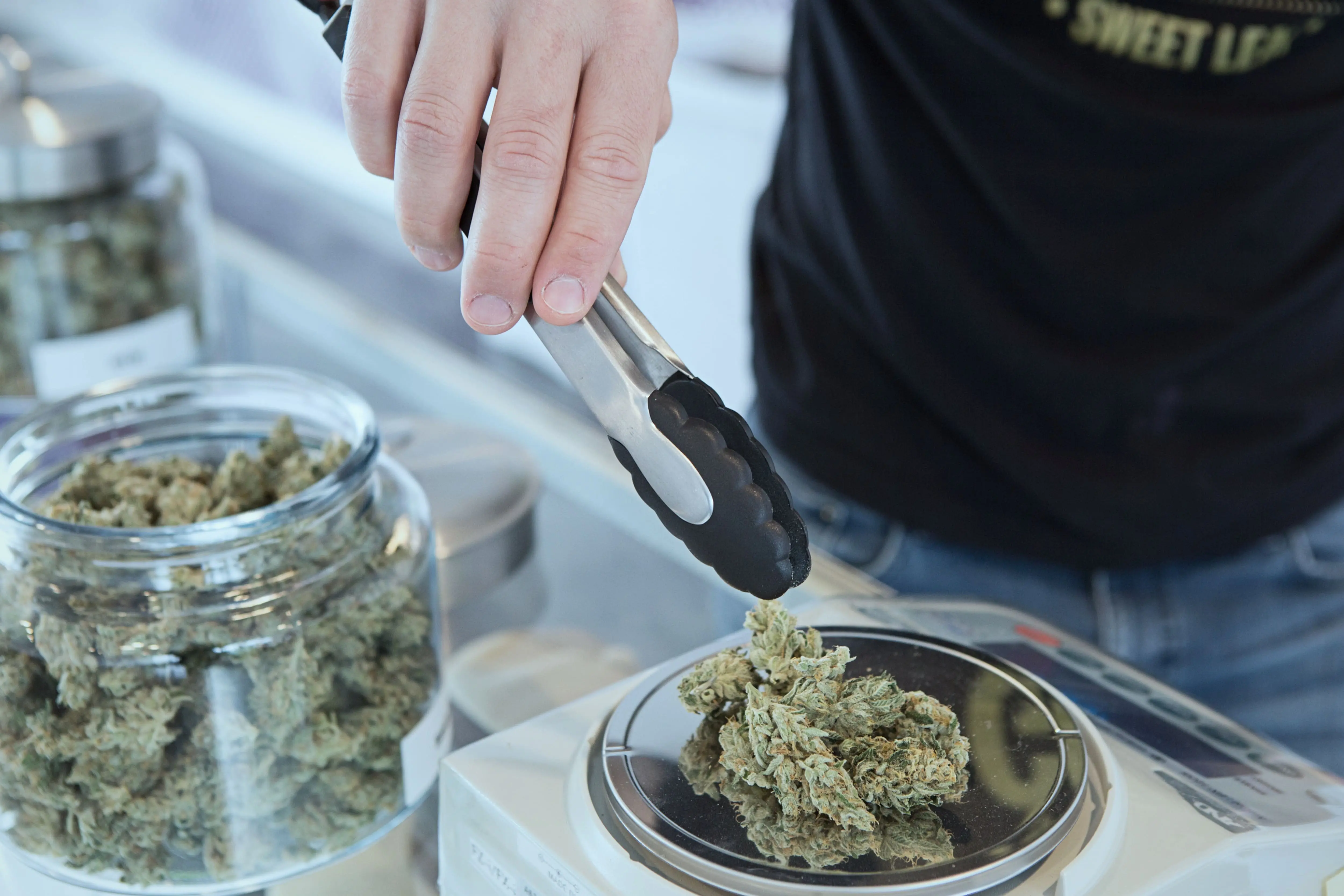Business
Minnesota’s Recreational Marijuana Market Launches, With First Sales At Non-Tribal Dispensaries

Minnesota’s first adult-use marijuana sales from non-tribal retailers have officially launched.
Two years after Gov. Tim Walz (D) signed legalization into law, the state’s market is now up and running, with the cannabis company Vireo Growth announcing the first sales at its Green Goods dispensaries on Tuesday. Additional businesses are also expected to start selling recreational products soon.
While certain tribal governments across the state have been permitted to sell marijuana on their reservations–and tribes have also agreements with the governor to sell at retail locations outside of their territories–this marks the first time a non-tribal entity has been able to market marijuana for adults.
“As a Minnesota company founded with a long-term vision for cannabis, we are proud to begin making our products available to all Minnesotans,” Vireo President Amber Shimpa said in a press release. “We will always remain committed to our medical patients and product portfolio as we have for over 10 years, and look forward to this new opportunity to serve adult-use customers with the same standard of quality and care.”
Alexandra Breant, Vireo’s head of market in Minnesota, said Tuesday represents “a historic day for our team which we have been preparing for since 2023, and we are honored to share it with patients and new customers across Minnesota.”
“This milestone is more than just expanding access, it’s about building community, fostering inclusion, and continuing to serve Minnesotans with care and responsibility,” she said. “We are grateful for the trust placed in us and look forward to being part of this new chapter together.”
Another multi-state operator, Green Thumb Industries (GTI), said its dispensary chain RISE will also start serving adult consumers beginning on Wednesday.
“We are excited to celebrate this historic day in Minnesota with the launch of adult-use cannabis sales,” Anthony Georgiadis, GTI’s president, said. “Our team is looking forward to introducing more Minnesotans to our industry-leading brands including RYTHM, Beboe, and Dogwalkers, while continuing to prioritize medical patients with the trusted service they expect from RISE, including exclusive curbside pick-up and priority parking at select locations.”
Minnesota Office of Cannabis Management (OCM) Executive Director Eric Taubel said the state is “at a point where critical work streams have come together, allowing state-licensed retailers to begin selling adult-use cannabis products to customers.”
“We’ve seen immediate interest from state-licensed businesses to work with Tribal Nations to carry Tribally grown products on their shelves as they open their doors to eager customers,” he said. “As the medical cannabis dispensaries transition to serving both medical patients and adult-use customers, we will closely monitor product levels to ensure they comply with this requirement.”
Notably, Minnesota sits in a geographically unique position with respect to cannabis, as it’s surrounded by states that maintain prohibition. Many of the newly authorized retailers sit within driving distance of borders with those jurisdictions.
Meanwhile, Minnesota’s House of Representatives recently circulated a poll at this year’s State Fair that asked attendees about the idea of allowing localities to enact bans on marijuana businesses within their borders. Most respondents who have an opinion on the issue agree with the policy, despite it not currently being a part of the state’s cannabis laws.
—
Marijuana Moment is tracking hundreds of cannabis, psychedelics and drug policy bills in state legislatures and Congress this year. Patreon supporters pledging at least $25/month get access to our interactive maps, charts and hearing calendar so they don’t miss any developments.
![]()
Learn more about our marijuana bill tracker and become a supporter on Patreon to get access.
—
Ahead of the enactment of legalization in Minnesota, lawmakers’ separate State Fair polls found majority support for the reform.
The governor has also selected a top cannabis regulator for the state who will oversee the adult-use market rollout. And while there may be some jurisdictions in favor of a local control option for licensees, over a dozen Minnesota cities have signaled interest in government-run cannabis retailers.
In June, OCM issued the state’s first recreational marijuana license for a cultivation microbusiness.
OCM said at the time that it’s taking further steps to build up in the industry and create opportunities to entrepreneurs, including opening a new licensing window for cannabis testing facilities, accepting the first applications for marijuana event licenses and verifying more social equity status requests.
Separately, after Minnesota lawmakers passed a bill to end the criminalization of bong water containing trace amount of drugs, the governor signed the measure into law in May.
The change addresses an existing policy that had allowed law enforcement to treat quantities of bong water greater than four ounces as equivalent to the pure, uncut version of whatever drug the device was used to consume.
In April, meanwhile, state officials moved to delay a separate drug reform—the opening of safe drug consumption sites, meant to allow people to use drugs in a safer, supervised setting.
“More work needs to be done on a state and federal level before these services can be implemented in a way that is safe for participants and Harm Reduction programs,” a representative for the Department of Human Services (DHS) Behavioral Health Administration said at the time.
In March, lawmakers also filed legislation that would create a system to allow legal access to psilocybin for medical purposes. That came just days after the introduction of a separate bill that would legalize personal psilocybin use and possession among adults.



